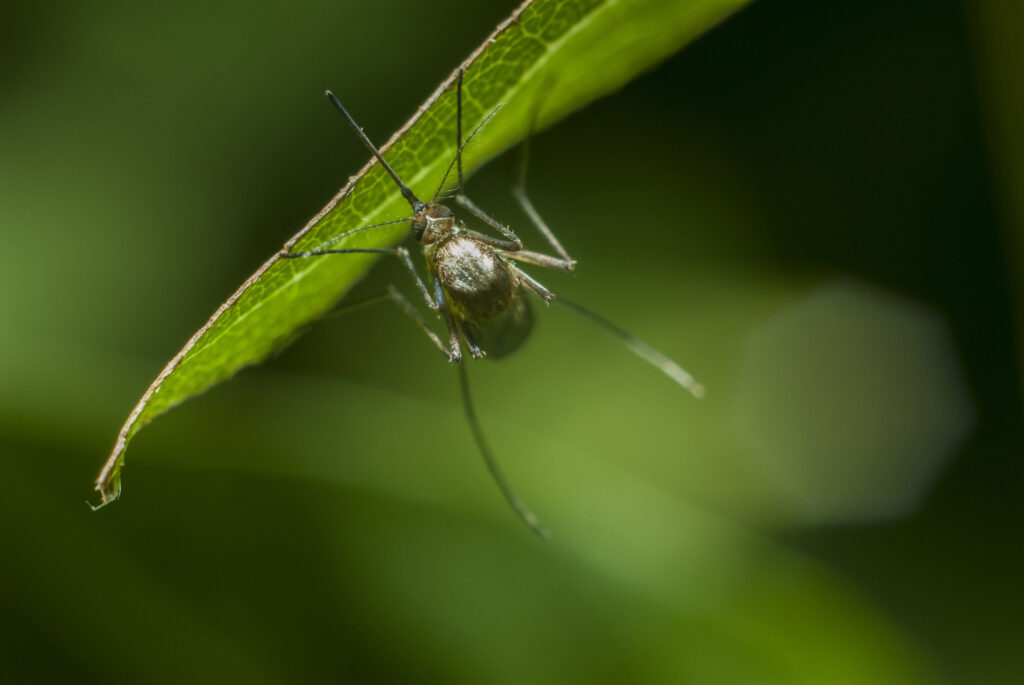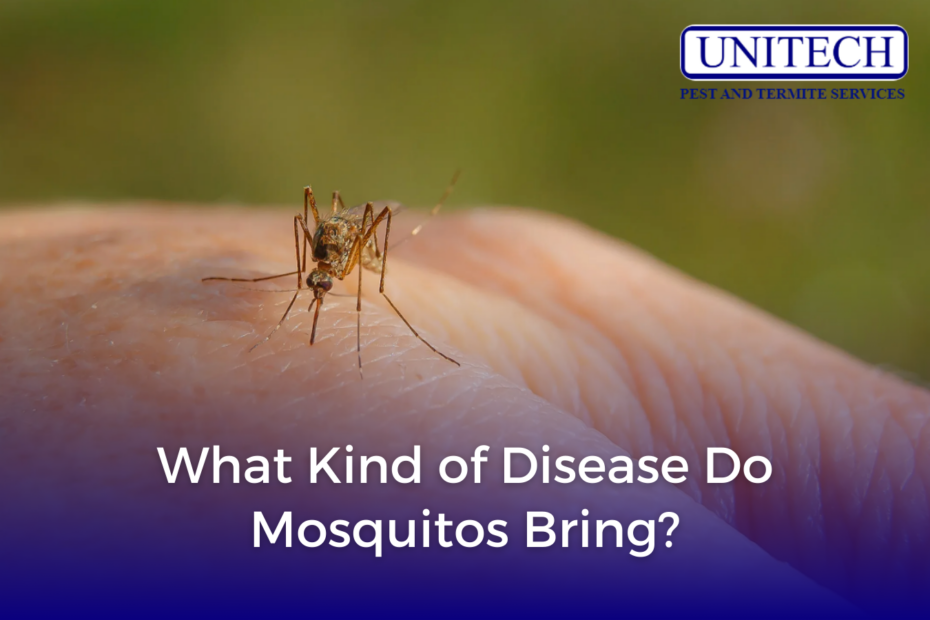Mosquitoes might seem like nothing more than bothersome insects, but they can pose serious health risks too. Many dangerous diseases affecting humans and pets alike are often transmitted by these tiny insects.
Mosquitoes aren’t just annoying; they can also make you very sick. We’ll go over what kinds of illnesses they spread and why taking steps to manage them matters a lot for public safety.

Diseases Transmitted by Mosquitoes
Malaria
Malaria is one of the most well-known diseases spread by mosquitoes. The culprit behind it is a parasite named Plasmodium. Mosquitoes become carriers when they bite someone already infected. Malaria usually brings on a high fever, shaking chills, and symptoms that feel a lot like the flu. If not treated promptly, it can become severe and even fatal.
Dengue Fever
Dengue fever is another common disease carried by mosquitoes, especially in tropical and subtropical regions. It is caused by the dengue virus and can lead to high fever, severe headache, pain behind the eyes, joint and muscle pain, rash, and mild bleeding. In severe cases, dengue can turn into dengue hemorrhagic fever, which can be life-threatening.
Zika Virus
The Zika virus gained global attention due to its link with birth defects. Although many people infected with Zika experience mild symptoms like fever, rash, and joint pain, pregnant women infected with the virus can pass it to their fetus, leading to microcephaly and other severe brain defects in newborns.
West Nile Virus
West Nile Virus is another disease spread by mosquitoes. Most people infected with West Nile Virus do not show symptoms. However, some may develop fever, headache, body aches, joint pains, vomiting, diarrhea, or rash. In rare cases, the virus can cause severe illnesses like encephalitis or meningitis, which are inflammations of the brain or surrounding tissues.
Chikungunya
Chikungunya is a viral disease transmitted by mosquitoes, causing fever and severe joint pain. The joint pain can be debilitating and last for months or even years. Other symptoms include muscle pain, headache, nausea, fatigue, and rash. While it is rarely fatal, the impact on quality of life can be significant.
Yellow Fever
Yellow fever is a viral disease that occurs in tropical and subtropical areas in South America and Africa. Symptoms range from mild (fever, headache, nausea, and vomiting) to severe (heart, liver, and kidney problems). Severe cases can lead to bleeding, shock, and organ failure.
Lymphatic Filariasis
Also known as elephantiasis, lymphatic filariasis is caused by parasitic worms spread through mosquito bites. It leads to severe swelling in the arms, legs, or genitals, causing pain and disability. Long-term infection can result in chronic conditions, including tissue damage and secondary infections.
Japanese Encephalitis
Japanese encephalitis is a serious infection of the brain caused by a virus found in Asia and the western Pacific. While most infections are mild or asymptomatic, a small percentage of cases can cause severe neurological symptoms, such as seizures, paralysis, and coma. It can be fatal or lead to long-term neurological damage.
Importance of Mosquito Control
Preventing Disease Spread
Effective mosquito control is vital to prevent disease spread. Lowering mosquito populations reduces disease risk. Tactics include removing standing water where mosquitoes breed, using repellents, and launching community mosquito control efforts.
Protecting Public Health
Mosquito control is crucial for public health, reducing mosquito-borne diseases, cutting healthcare costs, and improving life quality. Educating the public on control measures and personal protection is key to fighting these diseases.
Environmental Considerations
When implementing mosquito control, consider the environment. Use eco-friendly methods like introducing natural predators (e.g., fish that eat mosquito larvae) and biological control agents to maintain ecological balance.
Winning the Battle Against Mosquito-Borne Diseases: Effective Strategies for Community Protection
Mosquitoes are responsible for transmitting many dangerous diseases, making mosquito control a critical public health measure. By understanding the risks and taking proactive steps to reduce mosquito populations, we can protect ourselves and our communities from these health threats. Simple measures like removing standing water, using repellents, and supporting local mosquito control efforts can make a significant difference.
At Unitech Pest, we’re committed to protecting your health with our top-notch mosquito control solutions. Our experts use the latest technology to effectively reduce mosquito populations, lowering the risk of mosquito-transmitted diseases. Contact Unitech Pest for a consultation and see how we can help safeguard your community from mosquito-borne illnesses.


